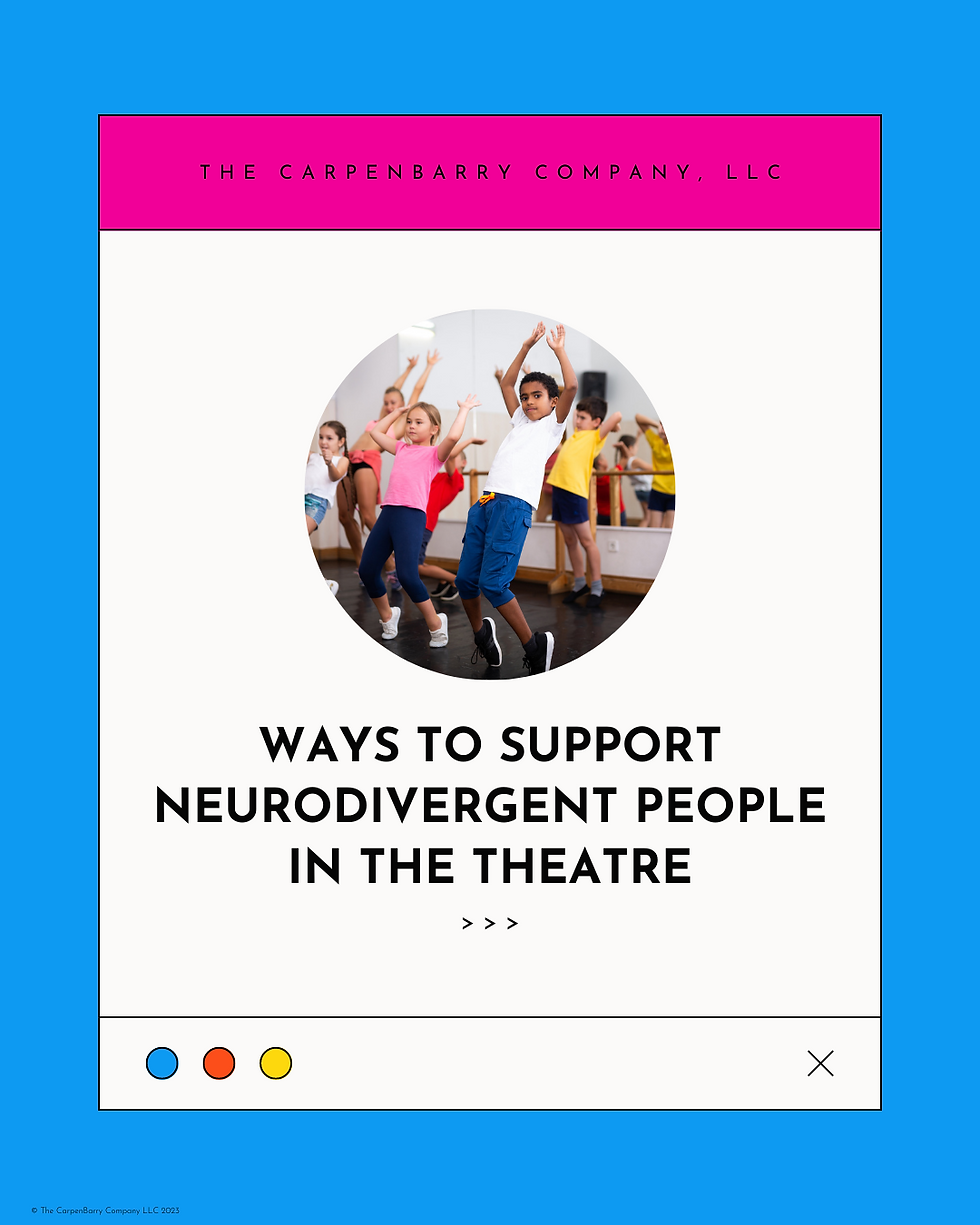
The theatre is an environment full of sensory stimuli that can both inspire and overwhelm performers. From the rehearsal space that is full of sound, movement, and other ever-changing distractions; to the performance space when we add lights, set, other new sounds (power tools drilling during on-stage rehearsal set my ears on fire), and costumes that may have a whole swath of sensory issues attached. As a late-diagnosed neurodivergent individual, I've embarked on a journey of discovery to find accommodations that promote success and inclusivity in rehearsals and performances. In this blog post, we'll explore practical strategies to support neurodivergent performers and provide guidance for determining what accommodations work best.
Sensory Support:
Fidget toys/sensory objects: Providing these tools allows performers to manage sensory input and maintain focus.
Private spaces to decompress: Offering designated quiet areas where performers can recharge and regulate their sensory experiences.
Choreography options/modification: Allowing flexibility in choreography to accommodate different sensory needs and physical abilities.
Noise-canceling headphones: These can be invaluable for reducing auditory overload, particularly during rehearsals with power tools or loud sounds.
Visual Support:
Written schedule: Sharing a written schedule in advance helps neurodivergent performers prepare and anticipate transitions.
Concise email communication: Clear and succinct email communication provides essential information without overwhelming individuals.
Changes in writing: Notifying performers about any changes in rehearsals or performances through written means to ensure understanding.
Videos of blocking/choreography: Providing visual references, such as videos, enables neurodivergent performers to review and practice at their own pace.
Auditory Support:
Transition time (5 min warning): Offering a five-minute warning before transitioning between activities allows performers to mentally prepare.
Verbalize any changes: Clearly communicating any changes or adjustments verbally to ensure everyone is informed.
Time to process information: Allowing neurodivergent performers adequate time to process instructions or feedback without pressure.
Positive reinforcement: Encouraging and highlighting achievements through positive reinforcement fosters a supportive environment.
The theatre is a space where both neurotypical and neurodivergent people thrive. Lots of people benefit from accommodations and it can be easy to include in our lesson plans. We hope to create a more inclusive and welcoming environment while improving learning outcomes for both neurodivergent and neurotypical performers. What strategies have worked for you?









Comments